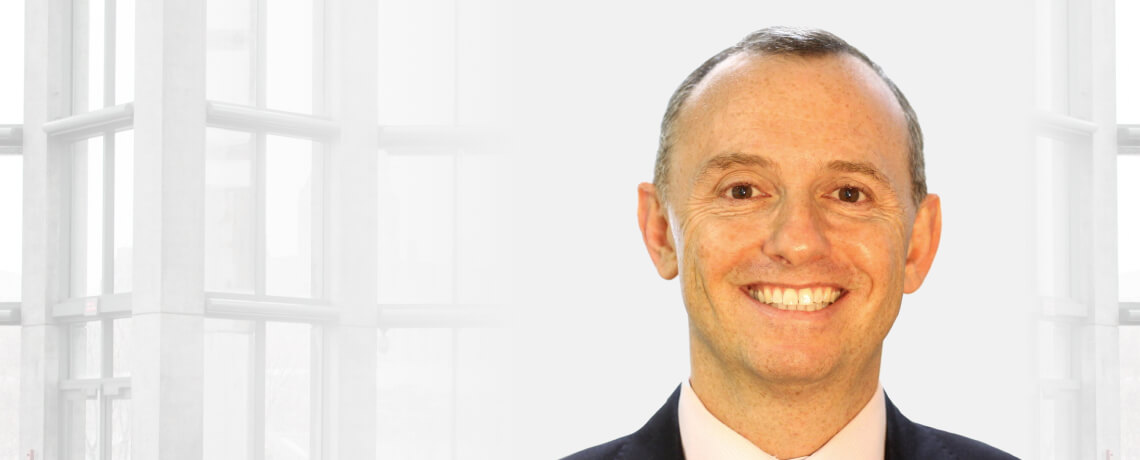
- Author: Alexandra Cain
- Posted: September 28, 2020
Aircraft to The a2 Milk Company: Race Strauss’s CFO Journey
By Alexandra Cain
When Race Strauss joined The a2 Milk Company at the start of the year, little did he know he would soon be helping to manage the business through one of the strictest, pandemic-induced lockdowns in the world.
Deemed an essential and global service, the company continued operating right around the world through the early stages of the pandemic and beyond. But its modus operandi had to change dramatically.
CFO Magazine readers were thrilled to hear about Strauss’s journey at the recent NZ CFO Live webinar, exploring how the business was able to continue operating not just across Australasia, but also throughout China and in other markets such as the US through 2020.
Strauss’s first priority when he started in the role in mid-January was the business’s interim results announcement, immediately undertaking roadshows to meet investors. This did not play out as expected.
Before accepting his current role, he has previously been a CFO with Qantas and Jetstar, and before that had held the Vice President Finance position at consumer goods company Unilever for its south-east Asian and Australasian operations.
Strauss took an unusual approach to learning the airline business when he first started at the Flying Kangaroo which he had hoped to replicate when he joined The a2 Milk Company.
“When I started at Qantas I went to the chief engineer and asked if I could spend a few days with him in the workshop as an ‘apprentice’. I invested a solid month crawling through $11 million aircraft engines, going to airports, and truly learning the business, which was a lot of fun.”
Race Strauss, CFO The a2 Milk Company
“I had a plan to do what I did in aviation at The a2 Milk Company and go out to the factories and visit the business. I got as far as the Melbourne office and one trip to New Zealand. I’ve now been in the role for almost nine months and I haven’t had a chance to visit any of our operations, in China and the US”
Ever resourceful, Strauss found other ways to build relationships and get up to speed on the dairy sector leader and ASX 50 company, whose point of difference is its intellectual property over its A1 protein-free milk and nutritional products such as infant formula.
For instance, he organises half-hour-long Zoom calls with his staff – without an agenda for the call.
“People love it because we all need interaction and we’re not getting enough of it at the moment. These unstructured discussions really replicate the water cooler – the introverts are happy to listen and the extroverts participate.
“But it has been challenging starting in the business because there’s nothing better than being able to go out and socialise, get to know someone and find out about their business and how I can help them. That’s harder to do when you can’t be face-to-face.”
Keeping up with COVID
Although a2 Milk was able to keep operating right around the world through the pandemic, it had to manage a whole host of new COVID-inspired challenges to do this.
Dealing with health and safety, working offsite, manufacturing and distribution were all affected in different ways in different markets, given many jurisdictions used entirely different approaches and were affected in different ways by the corona virus.
“Even in lockdown we got product to China and we continued to operate, which was a very privileged position and we respected it and are thankful to our partners,” says Strauss.
“We had a head start as a global company because we are used to working remotely. But it did change the way we work. Our first priority was our people and we came together with all our partners to ensure everyone was safe,” he adds.
This involved being flexible and agile and comfortable making decisions without all the relevant information at hand.
Says Strauss: “The world was moving so quickly. As a management team, we took a very agile, fast-moving approach to ensure key risks were mitigated.”
Success factors
The company also took fresh approaches to a range of other elements in its business, for instance risk, Strauss explains.
“We had a radical change to our risk profile. We run risk registers in different markets but the velocity of the shifts to these risks changed overnight and managing them became an instant issue. We needed to react quickly and we had a great team continually looking at our risk registers and adjusting them.”
He says the business also learned to make decisions quickly with imperfect information. “We knew if we didn’t change we’d lose in the market. So we learned we couldn’t operate with our usual level of robustness. But at the same time, we didn’t put shareholder funds or the business at risk.”
Ultimately, Strauss says the experiences of the past year have given the business good perspective about what’s really important.
“What matters are people’s lives and their livelihood. This has been a good reminder of what really counts and not to get too caught up in too much detail.”








